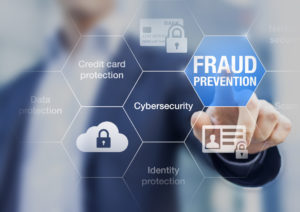
While October is best known for beautiful foliage, Halloween candy, and the unpacking of cozy sweaters, it is also Cybersecurity Month. Protecting your digital existence is critical for your financial well-being. Provided below for your convenience are some common security practice and storage measures, as well as a few password tips and tricks to keep yourself secure in an ever-growing online world.
Two-Factor Authentication (2FA):
This protection strategy is in the name – two forms of authentication. Authentication factors you may see frequently are of the knowledge and possession variety. Knowledge factors are passwords and security questions; a possession factor may be your cellphone or even a token provided by your employer. For example, when trying to access some email accounts, your password (knowledge factor) is required, as well as a code that has been sent to your phone (possession factor). 2FA tries to ensure that even if your knowledge piece is compromised, another layer of security prevents your information from falling into the wrong hands.
Biometric Security:
Another type of factor used in the previous 2FA explanation are biometric factors. Kirk predicted the future in Star Trek when he stood by for a retinal scan. Finger prints, voice recognition, retinal scans, and general facial recognition are forms of biometrics. Your unique physical traits are one of the most secure ways to authenticate and safeguard your information. The latest iPhones can be secured with facial recognition (Face ID), and the use of Siri is classified as a form of biometrics because you program her to respond to your voice only (if beyond iOS 9).
Password Managers:
Good riddance to the days of storing passwords under your mouse or in that notebook you somehow always misplace, password managers are here to save the day! These managers are a simple and secure way to ensure that you never lose access to your sites. A password manager is a holding place for all of your logins. Some can even generate or strengthen your existing passwords for you. These can be a cheap method of retaining your sanity and security, and to access everything, you only need one strong and easily remembered password.
General Security:
You would not lock your house with a piece of string, nor would you leave the key on top of the mat. This being said, you should not do this with your digital life either! Adhere to the following advice at minimum:
– Don’t keep all of your passwords under your mouse – choose a secure location. Better yet, acquire a password manager.
– The more complex the password, the stronger it is, let us use “dog” as an example password:
– Utilize capital and lowercase letters –> “dOG”
– Random strings of words are better than single words –> “IlovEmyDOGDouG”
– Special characters and numbers –> “1lov3MYd0gD0u5”
– Use different passwords for sites.
– Update passwords periodically.
Spring is for cleaning, and fall is for safeguarding. When you change your clocks on November 3rd, consider using the extra hour to update your passwords.
Please let us know if you have questions about the steps we take to protect you at Verus. We’d be more than happy to assist you in ensuring your digital existence is secure.